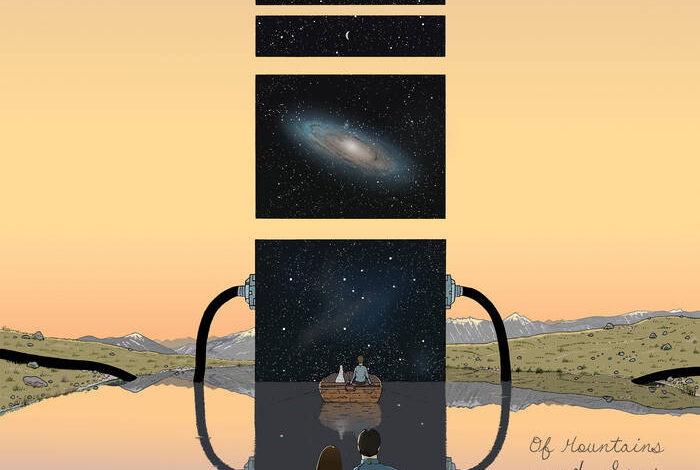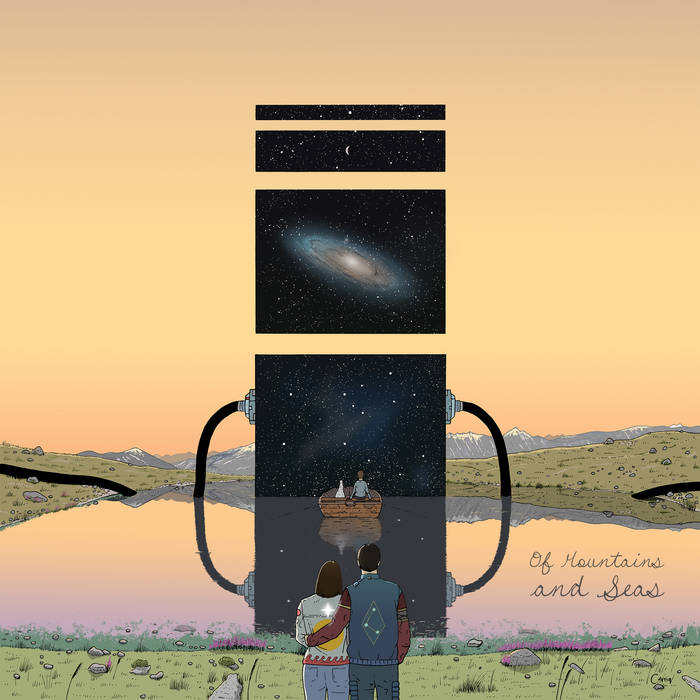Of Mountains and Seas ~ S/T


Most of us are vulnerable to occasional existential musings, but nothing evokes this type of thought quite like spending time around a young child. Children are infinitely inquisitive, and their “why” questions can cut unexpectedly deep. Aurélien Regert, in his new solo project Of Mountains and Seas, records– sonically and emotionally– a personal reflection on how having a son reshapes his relationships to the universe and to the passage of time.
Of Mountains and Seas is a true concept album. Beginning with “Departure” and ending with “Home,” the self-titled debut illustrates the father-son dynamic from both perspectives on either side of the relationship as it unfolds over time. The music video to “Cygnus,” referring to a constellation in the shape of a swan, depicts Regert’s seven-year-old son who asks, “Dad, what do you see when you look at the stars?” “Stories,” Regert replies. As the track unfolds– airy and distorted, clearly influenced by the artist’s post-rock background– the child sits outside in the dark, innocent curiosity guiding him as he manipulates synthesizers, while a halo of flickering lights surrounds him.
“The Traveller, I” is choppy and dissonant, as father and son both enter unfamiliar territory on their respective journeys. “Pegasus” shimmers and twinkles as it drifts through a labyrinth of stories, from ancient mythology to the fantasies the child makes up as he stargazes. A tonal shift towards somber meditation occurs in “Andromeda,” which builds up until a beat drops. The percussion is slow, heavy, and relentless like the passing of time. The title “Andromeda” refers to both a constellation and the galaxy closest to our own. Fittingly, this climactic track is the longest and most dynamic on the album. Visible from Earth with the naked eye, the Andromeda galaxy will likely collide with the Milky Way within 10 billion years.
Regert samples a real conversation with his son to create “Dad are we alone.” In French, the two discuss planets and how time warps in black holes. Radiant, heavenly instrumentals layered over the spoken snippets enhance the emotionally moving dynamic between the artist and the bright, curious child. A tender illustration of the father-son relationship, this track seems to answer the boy’s question by emphasizing that–regardless of what lies beyond– we are most certainly not alone here on Earth. The guitar arpeggios on “The Traveller, II” sound less ethereal and more human as they transition listeners back from the celestial world and into the last track, “Home.” Birds chirp as the album fades out– a final reminder that one needn’t go anywhere to find the simple beauty of ordinary terrestrial life. (Maya Merberg)



